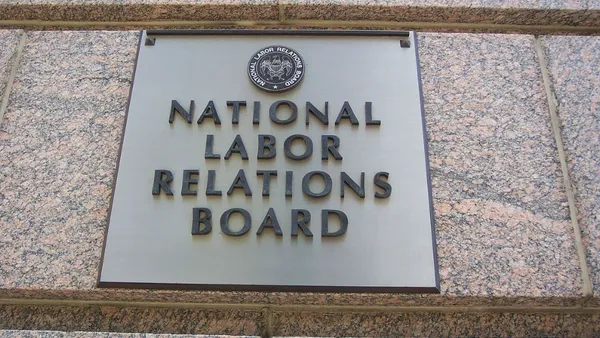Dive Brief:
- A transfer, made five to six months after an employee's accommodation request, did not amount to retaliation in violation of the Americans with Disabilities Act (ADA), the 9th U.S. Circuit Court of Appeals held (Lewis v. Clark County School District, No. 18-17060 (9th Cir. March 30, 2020).
- The plaintiff, an office specialist at a Nevada high school, had a lifting restriction to accommodation her carpal tunnel syndrome and arthritis. Five to six months after her request, she was moved to another school three miles away with the same hours and pay as part of a "turnaround" reform effort, according to court documents. She sued, alleging retaliation, and a district court granted summary judgment for the employer.
- On appeal, the 9th Circuit said the employee failed to show her accommodation request caused her "allegedly adverse transfer." The months that passed between her accommodation request and the transfer wasn’t an interval that could establish causation, the court said.
Dive Insight:
Employers may be understandably cautious about taking adverse employment actions shortly after an employee engages in a protected activity, such as requesting an accommodation, taking Family and Medical Leave Act leave or reporting discrimination or harassment.
After all, temporal proximity can sometimes give rise to claims, experts previously told HR Dive. But that doesn't mean an employer should refrain from doling out legitimate discipline. In fact, equal, nondiscriminatory actions can be important for preventing future claims; thorough documentation is key, too.
But what constitutes an "adverse action" isn't always clear. The facts and circumstances of each case have to be examined to determine if an action is materially adverse, according to a U.S. Equal Employment Opportunity guidance (EEOC) on retaliation.
The guidance notes a U.S. Supreme Court case in which the Court determined that transferring a worker to a "harder, dirtier job within the same pay grade, and suspending her without pay for more than a month, even though the pay was later reimbursed" were materially adverse actions. In a similar case, the 11th Circuit held that the transfer of an HR professional to a job on the floor of a chicken processing plant was a significant change in duties. The appeals court overturned a federal trial court’s decision for the employer, allowing the case to move forward.
On the other hand, courts have concluded that a temporary transfer from an office to a cubicle was not a materially adverse action because such a move was a "trivial punishment or petty slight" not likely to prevent an employee from engaging in protected activity.










